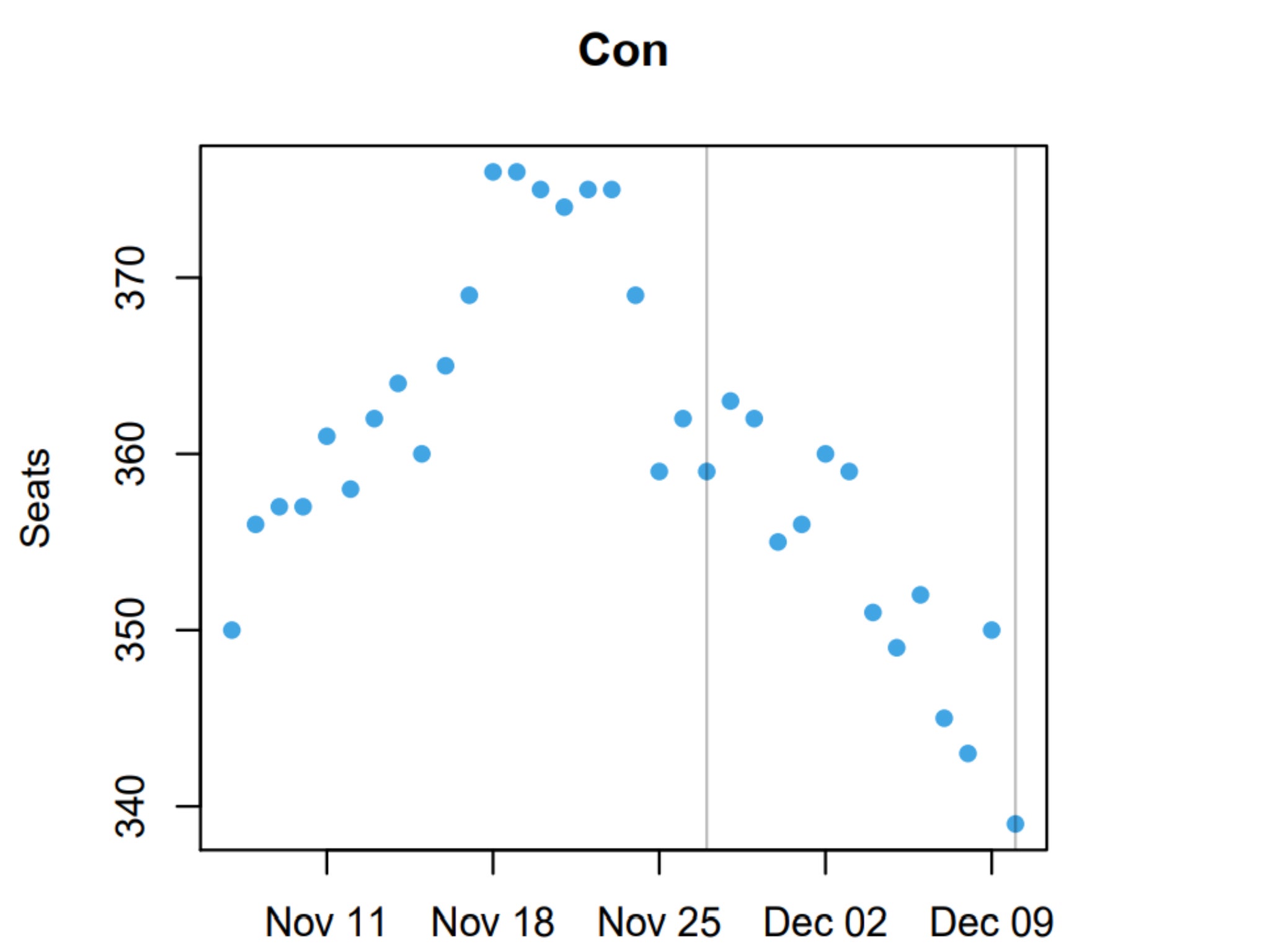The election isn’t a done deal – a swing of just 1 per cent in the polls could change everything
A small number of voters switching from Conservative to Labour could easily be enough to deprive Boris Johnson of a parliamentary majority

If I were Isaac Levido, the Conservative election campaign chief, I would be worried about one graph produced by the team behind YouGov’s MRP poll yesterday. On page 54 of the notes on the methodology of the poll, there is a scatter plot of the team’s estimates of the number of seats the Conservatives are likely to win tomorrow.
Since 22 November – the day after Labour published its manifesto – the blue dots have gone into a steep decline. Hence the halving of the MRP model’s projected Tory majority from 68 two weeks ago to 28 last night.
If there is further movement in public opinion in that direction in the final two days, the election day dot could be rather close to the danger point at which Boris Johnson would be stranded, deprived of a majority in the House of Commons.
In any case, the poll is surrounded by a range of uncertainty. It’s quite hard to bear in mind that the central estimate is just that, and the true picture – of how people were likely to vote over the past week – is likely to be higher or lower than a majority of 28: a poll getting the majority exactly right would be a huge stroke of luck.
And a swing from Conservative to Labour of just 1 or 2 per cent could wipe that majority out.

A 1 per cent swing doesn’t sound like much: it means 1 per cent of voters switching from Conservative to Labour. Usually it is more complicated than that: people shift between voting and not voting, and in and out of Lib Dem or Brexit Party voting, but a 1 per cent swing means the net effect that is the equivalent of 1 per cent going from Conservative to Labour. That small change could mean 10 seats changing hands. Again, it doesn’t sound like much, but if the result is near the cusp of a Conservative majority it could make all the difference.
The narrowest possible win, for example, would be for the Conservatives to win 322 seats. If Sinn Fein have seven MPs who refuse to take their seats, as they did in the last parliament, then Boris Johnson would have a working majority of just one: 322 seats to 321 for all the other parties in a 650-seat parliament.
There would be a big difference, then, between Johnson falling short of a majority on 321 seats, or winning 10 seats more: 331 seats would give him a working majority of 19. (That is because for every seat added to the Tory total, one is lost from the opposition total, so the majority increases by two each time.)
All this should be borne in mind in the blizzard of conventional polls that will be published today, as all the polling companies stake their reputations on their final projections (Ipsos Mori traditionally publishes its final poll on election day itself). Last time, one conventional poll (Survation) was close to the result, and one MRP poll (YouGov) out of the three (everyone has forgotten the other two, which were just as wrong as most of the standard polls).
What we cannot know until the exit poll at 10pm tomorrow night – and possibly not even then – is what the effect of (A) late swing and (B) polling error might be. But we ought, after three elections in which the result came as a surprise to most of the pollsters, to know what we don’t know.
We don’t know in which direction most of the polls are going to miss the result, but we do know that, if it is on the side of the Tories winning fewer seats than expected, we are no distance at all from a hung parliament.
Join our commenting forum
Join thought-provoking conversations, follow other Independent readers and see their replies
Comments
Bookmark popover
Removed from bookmarks